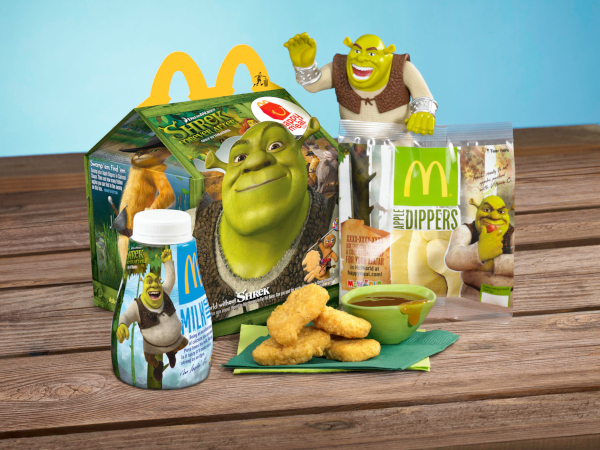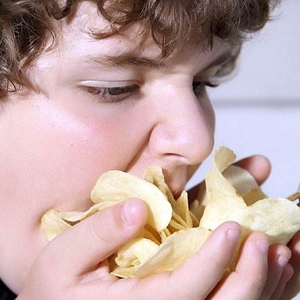Science has come up with a novel – though sneaky – way to ‘inoculate’ kids against pervasive Fast Food advertising: Turn their natural feelings of rebelliousness toward junk food, rather than toward parents, school or whatever the usual target may be. And the effects last long after the intervention…
 Junk Food marketing is a science, developed over the past 60 years or so,
Junk Food marketing is a science, developed over the past 60 years or so,
since TV came along, allowing advertisers to bombard kids with
manipulative images. For teenagers, the focus is on
convincing them that Junk Food is ‘cool’.
“Food marketing is deliberately designed to create positive emotional associations with junk food, to connect it with feelings of happiness and fun,” says study spokesman Christopher J. Bryan of the University of Chicago Booth School of Business. “What we’ve done is turn that around on the food marketers by exposing this manipulation to teenagers, triggering their natural strong aversion to being controlled by adults. If we could make more kids aware of that, it might make a real difference.”
What they did…
A preliminary study took place among eighth graders at a Texas middle school in 2016. The researchers went into classrooms and had one group of students read a fact-based, exposé-style article on big food companies. The article framed the corporations as manipulative marketers trying to hook consumers on addictive junk food for financial gain. The stories also described deceptive product labels and advertising practices that target vulnerable populations, including very young children and the poor. A separate, control group of students received traditional material from existing health education programs about the benefits of healthy eating.
A second, larger study took place a few months ago and its results have just been published in the journal Nature – Human Behaviour.
What they found…
The researchers found that the group that read the exposés chose fewer junk food snacks and selected water over sugary sodas the next day. And the effects of the intervention remained strong over the next three months – to the end of the school year when researchers lost touch with their subjects.
One interesting facet of the study findings was that boys were more apt to react negatively toward Junk Food after reading the exposé article than girls. Girls who read the exposé had a similar gut reaction to the notion that they were being manipulated by advertising as boys, but their cafeteria purchases were little different from those girls who read the health benefits article. Researchers postulate that the girls were less moved by the exposé article which spotlighted marketers’ manipulation of them than they were about other factors. Bryan says the exposé intervention technique might be more effective among girls if it targets factors they find more important, such as Calorie counts in Junk Food, which would appeal to girls’ heavy social pressure to be thin.
The takeaway…
‘Inoculating’ kids against choosing Junk Food could be as easy as manipulating what they’re given to read in Health Class. It could be a cheap, easy, painless way to help kids learn to eat better and be healthier. Especially if the effects last long-term, as the study suggests.
My take…
I think the idea behind the intervention process – turning a kid’s natural desire top ‘stick it to The Man’ against products and behaviours that may be enticing but are, nevertheless, harmful. There’s no stronger force in society than a kid’s animosity toward authority – unless its the obsession with getting a great deal on a new big-screen TV in the Black Friday sales…
But what’s even more exciting is this: The intervention method could be a great tool for moulding kids’ preferences and behaviours toward many factors in society. How about crafting exposé articles showing kids how the Tobacco Companies manipulate them into smoking and vaping? How about a similar program targeting Alcohol? And what about an intervention exposé showing how drug dealers manipulate kids into getting started on Cannabis, Cocaine, Meth and Opiates?
~ Maggie J.

